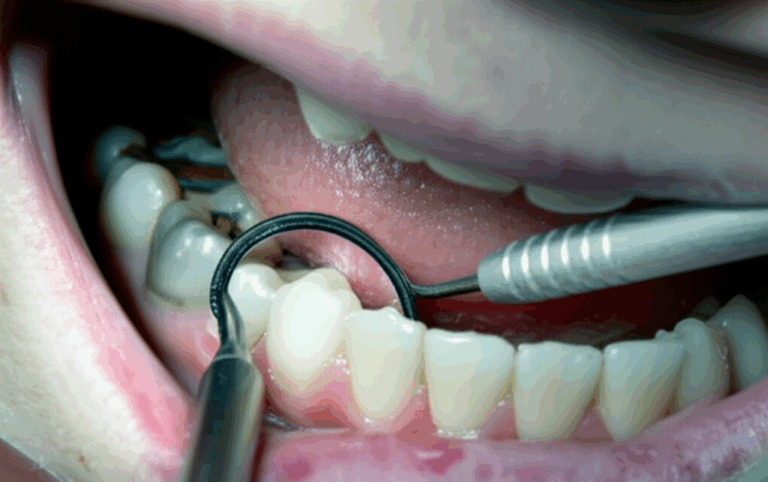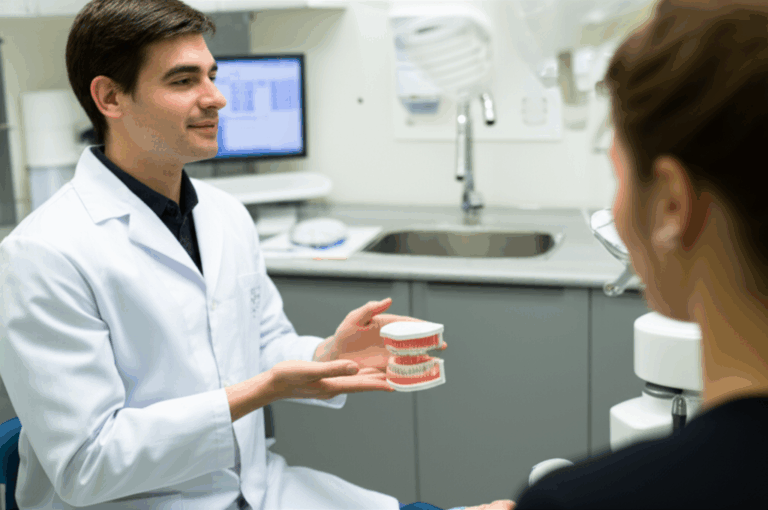
How Long Does It Really Take to Become a Dentist in the UK? My Personal Roadmap
Table of Contents
- What Studying Dentistry is Really Like
- Entry Pathways Explained
- What Happens During This Year?
- Why It’s Essential
- First Jobs and What to Expect
- Dental Core Training (DCT)
- What if You Stay in General Practice?
- Popular Specialties and Their Timelines
- Oral and Maxillofacial Surgery: The Exceptionally Long Route
1. Introduction: The Short and Full Answer
If you want to know “How long does it really take to become a dentist in the UK?”—I’ve asked the same! The simple truth is six years from starting university until you work on your own. That’s five years at dental school and one year working with help. But (and there is always a but), if you want to be a specialist—like orthodontist or oral surgeon—count on nine to fifteen years.
In this article, I’ll show you the path in easy steps, share what I learned, and explain what the system is like, what shapes your timeline, and what life actually feels like while training. I’ll also mention the hard bits and some surprises—including a few I went through.
Let’s get into it.
2. The Undergraduate Dental Degree (BDS/BChD)
What Studying Dentistry is Really Like
My first days at university were both exciting and scary, and soon I learned that dental school in the UK is a long race, not a sprint. Here, you study for a Bachelor of Dental Surgery (BDS) or sometimes, Bachelor of Dental Surgery and Dental Science (BChD)—the names vary, but the size and shape is the same: five years, full-time.
In these five busy years, you learn about everything from how the body works to how to talk to patients. In my experience, the first two years are full of tough science work—you read a lot, you learn about what makes up the head and neck, diseases in the mouth, and even about medicines. It’s not easy if you don’t love science.
Later on, the degree changes. You spend more time in the clinic, seeing real patients with teachers watching you. The first time I had to fix a hole in someone’s tooth, my hands were shaking, but the teachers helped out. In Year 4 and 5, you spend most days with patients, working on things like fillings, crowns, and small surgeries.
If you’re like me, you’ll find out about things you didn’t even know were jobs—like gum disease work, false teeth, and fixing the inside of teeth! We even spent a little time seeing how dental ceramics labs and implant dental laboratories prepare the stuff we use, which really makes it feel real-world.
Entry Pathways Explained
Getting into dental school in the UK is very tough. Here’s what’s out there:
- Standard 5-Year Route:
Most people start just after A-levels (usually chemistry, biology, and maybe maths), plus high exam points. Loads of schools want you to take the UCAT or BMAT test, and—don’t forget—write why you want to be a dentist and do some work shadowing.
- Graduate Entry (4 Years):
Some schools have a four-year fast-track for those with science degrees. If you’re going for a career change, this is your best way in.
- Extended/Foundation Year (6 Years):
Some programs add a year for people from different backgrounds or with less usual grades.
Friends of mine came in both ways—one thing’s clear: No matter your path, the fight to get in is hard. For every spot, there are about 10-15 who apply.
3. Dental Foundation Training (DFT / DF1)
What Happens During This Year?
So, you finished dental school—what next? The next step is Dental Foundation Training (DFT, or DF1), a must-do paid year where you work while being watched. This is like a dental “internship”.
For me, DFT was a huge jump but also the most useful year. Suddenly, you’re in a real NHS dentist team, seeing nervous patients, and learning how a surgery is run. I had to get quicker with my hands and better at talking to people. You still have backup from trainers, but you also learn to stand on your own feet.
You can’t skip this year. It’s run by the NHS and Health Education England, and getting a place depends on your marks at university and interviews.
Why It’s Essential
Here’s the thing: you can’t sign up fully with the General Dental Council (GDC)—the UK’s boss for dentists—unless you pass DFT. No DFT, no working alone. Believe me, there’s no shortcut here. The process is national and pretty tough, but once it’s done, you can treat patients without a teacher watching over you.
4. Going Solo: Full GDC Registration and Independent Practice
When you finish DFT and your trainer says you’re safe, you get full registration from the General Dental Council. Getting that paper in the mail was the best feeling. Now, you’re really a dentist, and more jobs open up.
First job:
Almost all new dentists, like me, start as an Associate Dentist. That means you treat patients in a normal clinic, usually for the NHS or sometimes in private practice. Your pay is finally good, you have real choices, and you start to see what daily dentistry is actually like.
I still remember how weird it felt not having someone watch every move. Sure, you get tricky patients—but it’s up to you now.
5. Beyond the Basics: Post-Foundation Routes
Dental Core Training (DCT)
After your first year working alone, some dentists want to boost their skills with Dental Core Training (DCT). I thought about this myself. DCT takes one to three years (DCT1, DCT2, DCT3) and lets you work in hospitals or community dentist jobs. You might do things like:
- Oral surgery
- Maxillofacial hospital jobs
- Children’s or complex tooth fixing
- Community dental health (which taught me a lot)
It’s not a must, but more and more people do it, especially if they want to do extra training or be a specialist. DCT gives you good practice and helps you stand out for future jobs.
What if You Stay in General Practice?
If you stick to normal dentistry—like most of my friends—you’ll keep learning through Continuous Professional Development (CPD). The GDC makes you do 250 hours of CPD in five years; you really will need it to keep up with new techniques, law changes, and care rules.
Some people go on to own their own practices, which brings its own set of joys and headaches. There’s also options to learn about running a business, better patient chats, and even trying your hand at something new. It’s not just about tooth fillings.
6. How Specialisation Works (and How Much Longer It Takes)
If, like me, you want to work in a special area—like braces or fixing inside teeth—get ready for a longer journey. These jobs are really hard to get, and you need a lot of passion to get on the GDC’s Specialist List.
Popular Specialties and Their Timelines
Here’s what my friends in specialty areas went through:
- Orthodontics: Around three extra years (after DFT/DCT)
- Endodontics, Gum Specialist, False Teeth, Oral Surgery: Three to five years more
- Complex Tooth Fixing: About five extras (it mixes a lot of jobs)
- Children’s Dentist: Three to five years more
Usually, you need to do at least one year of DCT before you can even try to apply. And you’ll be right back into tests and interviews again.
On top of it all, you’ll need to do work reviews, tough exams, and keep growing your skills—think of it as a mini-university again.
At the end, you get a Certificate of Completion of Training (CCT) and can be listed as a specialist with the GDC, opening up jobs like hospital work or being someone who gets referrals.
Oral and Maxillofacial Surgery: The Exceptionally Long Route
Let’s talk about the super-long one—Oral and Maxillofacial Surgery (OMFS). To be a consultant OMFS, you need both dentist and doctor degrees. That can mean ten to fifteen years of school and hospital work:
- Dental degree (five years)
- Medical degree (four to five more)
- Doctor foundation years
- OMFS special training
Not easy at all!
7. Wrapping It All Up: Total Timelines and My Own Lessons
Here’s the big picture:
| Career Path | Minimum Time from University Start |
|---|---|
| General Dentist (UK) | 6 years (5+1) |
| General Dentist (Graduate) | 5 years (4+1) |
| Specialist Dentist | 9-15+ years |
| OMFS Consultant | 10-15+ years |
I have to say: the path is clear but life doesn’t always follow a plan. Some friends finished quick; others took some time out, had to redo exams, or switched what they wanted to do. Stuff happens—so while you can try to plan, you also have to go with the flow.
8. What Affects Your Journey (And How to Tackle the Hurdles)
Lots of things can make your training longer (or sometimes shorter):
- Entry route: Standard vs. graduate vs. extra year
- Personal stuff: Health, family, or gap years
- Marks: Getting DCT or specialist jobs isn’t easy—sometimes you wait a year or two
- Changing your mind: Switching specialty, moving from NHS to private, etc.
- Overseas qualifications: If you’re from outside the UK or EU, the GDC has more hoops to jump through. (One friend of mine, trained abroad, had two years of exams and practice to do.)
If you run into trouble, try not to stress. I’ve seen great people get set back but still become good dentists. It’s not always fun, but you’ll get through. Stick with supportive classmates and trainers.
9. Is the Long Haul Worth It? My Honest Take
People often ask, “Is it worth it?” My answer: Yes, but only if you really care about helping people and learning all the time. Dentistry in the UK is a steady, well-paid, and respected job. It feels good helping patients and seeing the difference you can make, and you get better at your job every year.
The science doesn’t stand still—new tricks come up all the time. For example, new materials from zirconia labs and digital dental labs have totally changed what we do for things like crowns.
But don’t let social media trick you: getting here takes hard work, patience, tough skin (sometimes for real), and being able to change your plans. The time, energy, and money it costs is big. If you’re ready for all that, it does pay off—like it did for me.
10. Frequently Asked Questions on UK Dentistry Training
Q: What’s the shortest time to qualify as a dentist in the UK?
A: Six years (five years in university, one year training).
Q: Can I try to specialise just after dental school?
A: No—you have to finish DFT and often at least one year of DCT first.
Q: What do most new dentists do?
A: Around 70-80% start out as associate dentists, mostly in NHS jobs.
Q: Do I need to care about CPD? Why?
A: Yes. The GDC needs 250 CPD hours in five years, and at least 75 should be checked. CPD keeps you legal and up-to-date.
Q: If I already have a science degree, does it change things?
A: You can try for the four-year dental degree (graduate entry), but it’s very tough to get in.
Q: Is this process like training to be a doctor?
A: Very close—for general practice it’s about six years, for specialist training it can take ten years or more for both.
Q: Can dentists trained overseas work in the UK?
A: Yes, but the GDC has their own checks. Outside-Europe dentists often have to pass the Overseas Registration Exam and sometimes extra practice.
Q: Are there other ways in?
A: Some dental care workers (like hygienists) can train to be dentists, but that means starting all over.
Q: Is there a guide for dental students?
A: I think this dental practical guide is good for tips and honest help.
Final Thoughts
To sum up, becoming a dentist in the UK is long, set out clearly, and honestly, takes a lot of work. But you’ll find pride and cool moments along the way. If you like a challenge, love to learn, and want to help others—go for it. It’s one of the best jobs out there. And if you ever want advice, ask a dentist who’s done it. I’m sure glad I did.
Content reviewed by Dr. Joe Dental, NHS General Dentist and Vocational Trainer.








